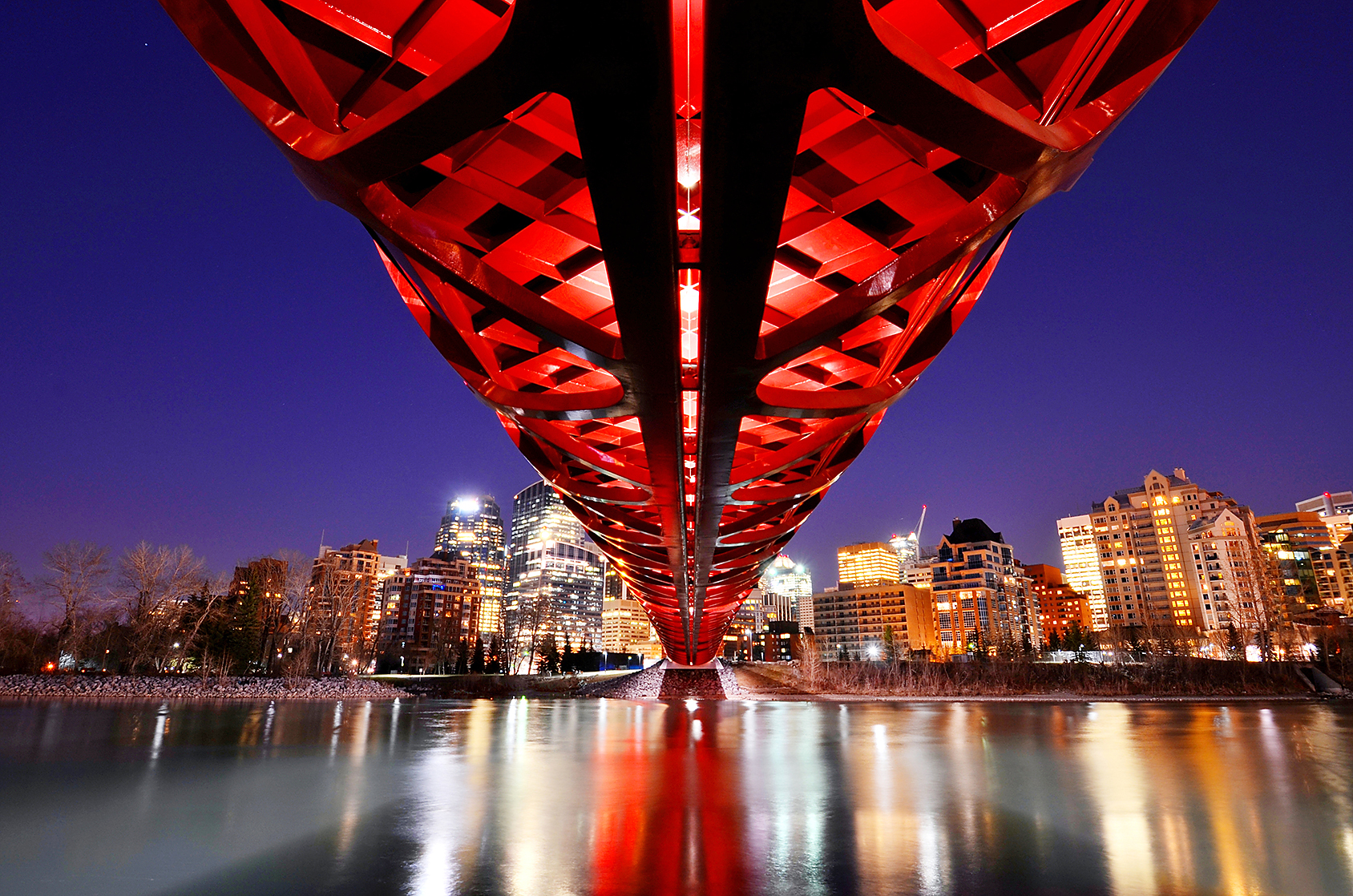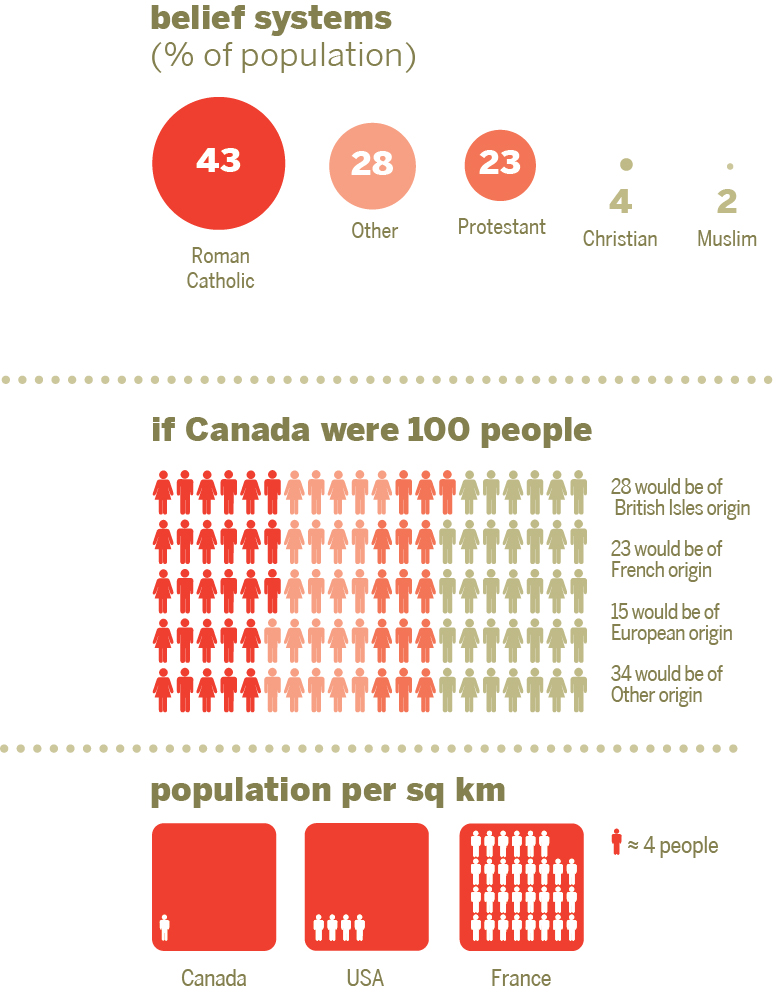Canada Today
In 2015 Canada got a major facelift with Liberal prime minister Justin Trudeau. Suddenly the world saw photographs of a young leader surfing, hiking, marching in gay pride parades and championing women's rights. There was a collective sigh of relief as Canada became cool again. But with oil prices plummeting and the not-too-quiet whisper of recession in the air, the future isn't looking rose-tinted for everyone; tension between natural resources and a carbon-free economy runs high.

Economy
Compared to its international brethren, Canada weathered the global financial crisis pretty well. Yes, the economy dropped into a recession, and Ottawa posted its first fiscal deficit in 2009 after 12 years of surplus. But six years later, Canada clawed its way out and was the only one of the seven major industrialized democracies to return to surplus in 2015. The Conservative government of the time focused on federal job cuts that impacted many departments, including Parks Canada and Aboriginal Affairs. In their first full year back in office, the Liberals planned for a $30 billion deficit in 2016–17, claiming investment in job creation, support for the middle class and infrastructure would build a brighter, more sustainable future.
Oil Between Neighbors
Voltaire may have written off Canada as ‘a few acres of snow’ back in the mid-18th century, but those few acres have yielded vast amounts of oil, timber and other natural resources, and propelled Canada to an enviable standard of living.
Extracting and developing the resources have, however, come with an ecological price. Oil, in particular, is a conundrum. Northern Alberta’s Athabasca Oil Sands are the world’s second-biggest oil reserves, and they've done an excellent job boosting the economy. They also produce 5% of Canada's greenhouse gas emissions, according to Environment Canada. The pro-industry camp says improvements are being made and, when compared to other oil producers such as Saudi Arabia and Venezuela, the oil sands measure up, especially when human-rights issues and decreased transportation distances are factored in (most of Canada's oil goes to the USA).
The controversial Keystone XL pipeline played into these themes. Aimed to funnel Alberta's crude oil to refineries on the Texas and Louisiana coast, much of it was already built when the US State Department refused approval for the pipeline's completion in late 2015, saying Canada could be doing more to curb carbon emissions. The project was also contentious within Canada, with environmentalists and Aboriginal communities vocal about their concerns regarding damage to sacred sites and water contamination. Interestingly, the US rejection did little to antagonize relations between the new Canadian Liberal government and the US Democrats, but instead brought strong disapproval of the Liberals from oil-industry communities in Canada. Many believe the pipeline could return to the table.
Table Talk
The nation’s much-cherished but ailing universal health-care system sparks serious table talk. Although no one will admit it, a two-tiered system is in place, and those with deep pockets can access additional, often quicker care in private facilities. Still, a free, portable health-care system that’s available to everyone is quite a feat. To many citizens, it’s at the very root of what makes Canada great. So are progressive views on same-sex marriage, immigration and marijuana use.
With wildfires, oil leaks and flooding making headlines, climate change is another hot topic. A 2016 poll showed only 61% of Canadians believe climate change is caused by human activity; it revealed those in Alberta and Saskatchewan were least likely to believe this, while residents of British Columbia, Ontario and Québec were most likely to.
Politics
After being under Conservative rule for almost 10 years, Canada went to the polls in record numbers in 2015 in an election that strongly divided the population. Resource-based communities backed the Conservatives, while many others felt the party had sold out to big business and was being short-sighted in supporting industry over the environment. Many also feared that a split in votes between the leftist New Democratic Party (NDP) and the Liberals would return the Conservatives to power.
The Liberals took back the reigns with a majority leadership headed by the young Justin Trudeau. Son of Pierre Trudeau, the country's 15th prime minister, Justin is a media magnet much like his father, and Canada is witnessing a return to the Trudeau-mania of the 1970s and ’80s. Just 43 when he took office, Justin's forthright support of women, children, immigrants, same-sex marriage, marijuana legalization and environmentalism has been welcomed by many Canadians disheartened by Conservative rule. For them, Trudeau embodies much of what it means to be Canadian. Meanwhile, industry-based communities are less than enamored.
